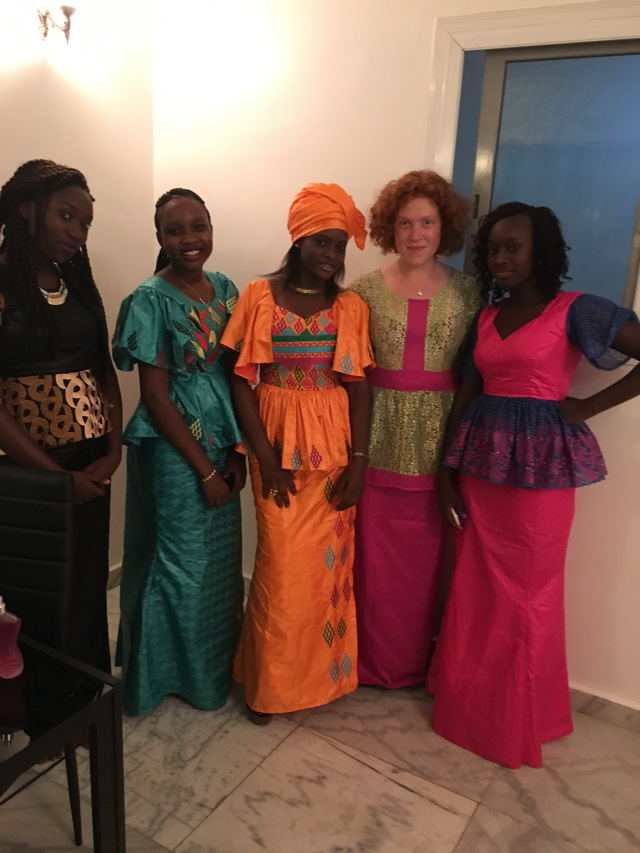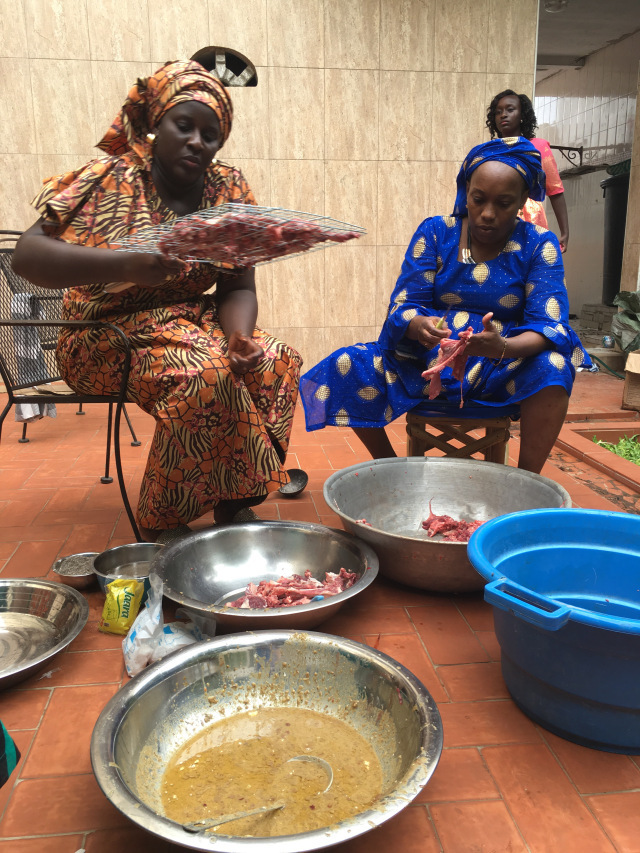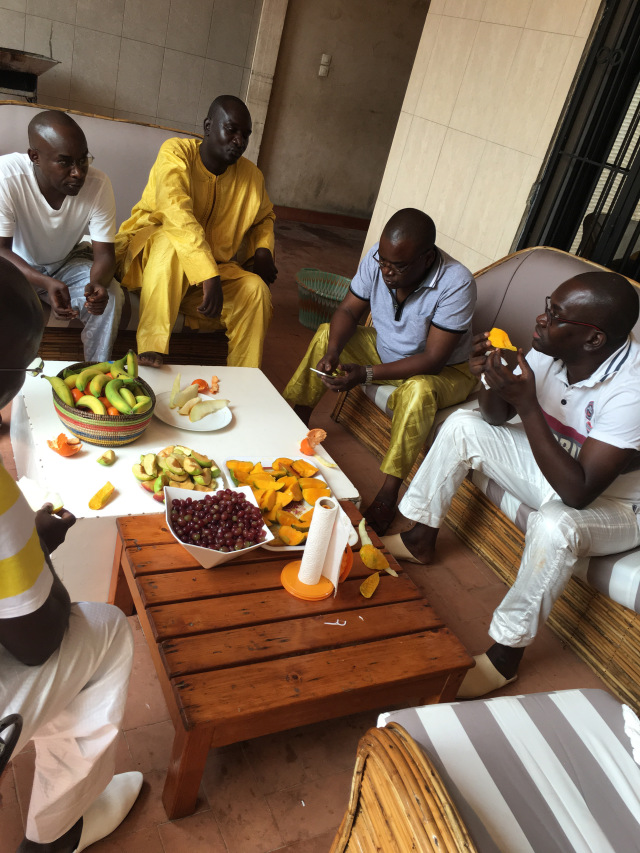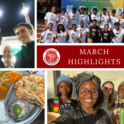StoriesBack to Stories
Tabaski in Senegal

By Cricket L., YES Abroad 2016-17, Senegal
On September 12, my host family celebrated one of the biggest Muslim holidays, Tabaski (equivalent in importance to Christmas) Tabaski, also known as Eid Al-Adha, celebrates Abraham’s willingness to sacrifice his son for Allah. In honor of this holiday, every man buys a sheep for Tabaski that will serve as his family’s sacrifice.
On Saturday, my host dad and brother went to get our sheep, and they brought home a fairly large ram that was black and white. Over the next day, we accumulated six sheep in all, as all of the extended family that would be celebrating Tabaski with us dropped their sheep off at my family’s house. In addition to the sheep, other preparations involved everyone getting new clothes, running errands, and cleaning the whole house.
On Monday morning, we woke up early and prepared ourselves for the big day ahead. For me this meant getting dressed in a traditional dress that my host sister, Oumou, lent me. My host mom, Safi, had also bought me a new fancy outfit, but that was for me to wear in the evening. The day started with a normal breakfast of cereal, hot milk, and a baguette with Nutella. However, just after 8:00am, the men and boys went to the mosque to pray. During this time, I helped prepare the lettuce to be made into a spicy salad for lunch. Once the men had returned from the mosque, we all prepared to sacrifice our family’s six sheep.
In some families, a male family member sacrifices the sheep and cuts up the meat. However, my family hired two men to come to our house to both sacrifice and cut the meat. It was fascinating to watch how skillfully they sacrificed the animals.
Below: Grilling the meat after the sacrifice.

The next hours were filled with the cutting, marinating, grilling, and finally, eating of the mutton. This process was kind of a free-for-all that started with a huge bowl of meat being plunked down next to my three aunts and host mom. Then they cut up the contents of the bowl into smaller pieces and spooned a spice-filled marinade over everything. Safi then grilled most of the ribs on our large grill, while two more aunts grilled other pieces of meat over smaller grills. Once the meat was cooked, it was either placed in the hands of a hungry observer (like me!) or dumped onto a giant platter serving ravenous kids and adults alike.
The eating and grilling continued for about three hours. The freshly grilled meat (accompanied by a never-ending supply of local baguette), was followed up with salad, and, to finish it all off, a fruit feast consisting of mangos, bananas, oranges, papayas, apples, grapes and melon. The feasting was followed by much socializing and chatting. I met so many people, and it was a day of introductions, food, and celebration.
Below: Enjoying fruit after the meal.






